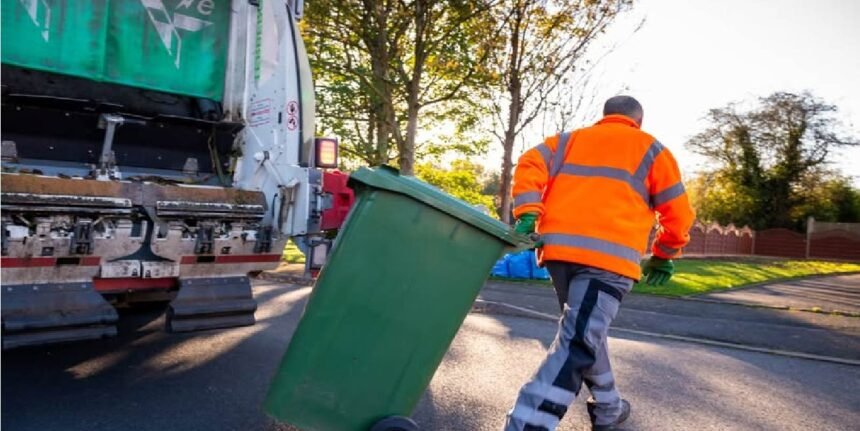Managing waste properly is more than just a matter of hygiene—it’s essential for safety, environmental protection, and maintaining order in both homes and businesses. Whether you’re handling a construction project, cleaning out years of accumulated items, or organizing a large-scale demolition, dumpster rentals can be the key to simplifying the process and keeping things under control. This article delves into what dumpster rentals involve, how to choose the right dumpster, best practices, and tips to make your rental experience smooth and cost-effective.
What Are Dumpster Rentals?
Dumpster rentals refer to the service of providing large, temporary waste containers to individuals or organizations for a defined period of time. These dumpsters are delivered to your site, filled with debris or unwanted items, and then hauled away for proper processing. Companies that offer dumpster rentals usually offer several sizes, service durations, and waste types—such as general debris, construction waste, recyclables, or hazardous materials.
Key components of this service include:
- Delivery & Pickup: The dumpster is dropped off at a predetermined location and picked up when the rental term ends, or earlier if full.
- Size & Type Choices: Rentals come in varying capacities—small 10-yard bins for minor cleanups, to large 40-yard units for big jobs. Some dumpsters are open-top, while others have lids or enclosed designs.
- Waste Classification: Different dumpsters are restricted by what can be put inside—standard trash, recyclables, yard waste, etc. Certain items such as tires, batteries, or chemicals may require special handling.
- Rental Duration: Typical rental periods range from a few days to several weeks, depending on your project’s requirements.
How to Choose the Right Dumpster
Choosing the wrong size or type can lead to added costs, delays, and inconvenience. To make the right decision, consider the following:
- Project Scale & Volume
Estimate the amount of waste you’ll generate. If you’re removing trash from a garage, a smaller dumpster (10–15 cubic yards) may suffice. Large renovations or construction projects might demand 20–40 cubic yards. It’s often better to slightly overestimate than underestimate to avoid multiple deliveries. - Type of Waste
Are you disposing of household trash, construction debris, concrete, yard waste, or hazardous materials? Some materials may require special containers, and mixing incompatible materials (e.g., hazardous with general debris) can violate regulations or incur extra fees. - Access & Placement
Determine where the dumpster will sit. Make sure there is sufficient space for delivery and pickup trucks to maneuver. Also, check whether the surface will support the weight (e.g., driveways, asphalt, concrete). If placing on street, a permit may be required. - Rental Period & Flexibility
How long will you need the dumpster? Many services offer standard periods but allow extensions. Be clear on the duration and what happens if you need more time. - Cost & Additional Fees
Understand the breakdown of fees: base rental cost, delivery fee, disposal/weight fee, overfill or overage charges, and potential penalties for prohibited items. Ask for a full quote to avoid surprises. - Environmental Policies & Recycling
Some dumpster companies incorporate recycling or reuse of materials. If sustainability is a priority, ask about sorting, recycling, or composting options.
Situations Where Dumpster Rentals Shine
Dumpster rental services are particularly useful in various scenarios, including:
- Home Renovations: When tearing down walls, replacing flooring, or renovating kitchens and bathrooms, the debris adds up fast. A dumpster reduces the need for frequent trips to disposal sites.
- Spring Cleaning & Decluttering: For large cleanouts of basements, attics, garages, or sheds, having a dumpster on site helps ensure waste removal is handled efficiently.
- Construction & Demolition Projects: Projects like home extensions, roof replacements, or commercial builds generate large volumes of waste—materials that require organized disposal.
- Landscaping & Yard Work: Clearing trees, brush, soil, or debris from large excavation or landscaping tasks benefits from a dumpster’s capacity.
- Event Cleanups: Festivals, fairs, fundraisers, or large gatherings produce a lot of trash and waste in short bursts. A dumpster onsite helps manage waste while maintaining a clean environment.
Best Practices for Efficient Dumpster Usage
To get the most out of your dumpster rental, follow these practices:
- Plan Ahead
Schedule your dumpster delivery well before work begins. If your project timeline changes, coordinate with the rental provider early. - Don’t Overfill
Keep waste level with the top of the dumpster (or slightly below) to avoid overfill charges. Items piled above the top can pose safety risks and may violate local ordinances. - Separate Recyclables
If possible, separate items like metals, cardboard, plastics, and wood for recycling. Some services provide discounts or lower fees for sorted materials. - Avoid Prohibited Items
Many companies prohibit hazardous waste, batteries, tires, paints, or certain electronics. These require special disposal. Including them in a regular dumpster can lead to steep fines or refusal of pickup. - Load Evenly
Distribute weight uniformly to avoid tipping or unsafe transport; placing heavy items all on one side can make lifting or hauling dangerous. - Ensure Accessibility
Don’t block access to the dumpster. Keep driveways clear, maintain sufficient space for trucks, and ensure gates or other barriers are open for pickup.
Cost Factors & How to Manage Expenses
While dumpster rentals might seem straightforward, the total cost depends on several variables. Here’s what influences pricing, and how you can keep costs manageable:
- Size of the Dumpster
Bigger dumpsters cost more for the rental period and disposal. If you don’t need a large capacity, choose a smaller size to save money. - Weight of the Load
Many rentals include a base weight; exceeding that adds per-ton fees. Heavy materials like concrete or soil can quickly push you over limits. - Distance to Disposal Site
Transportation adds cost. If the disposal or recycling site is far, fuel or travel fees may apply. - Rental Duration
Extended rental periods often incur extra days or weeks of charges. Stick to your timeline. - Type of Waste
Mixed loads or hazardous materials cost more to process. Separated recyclables or compostable materials may be cheaper. - Permits or Local Authority Fees
If placing a dumpster on public property like streets or sidewalks, you might need a permit. Factor in those fees. - Overrun Charges
Overfilling (beyond top edge), late returns, or adding prohibited items usually lead to extra charges. Read terms closely.
To manage costs:
- Accurately estimate the volume of waste before renting.
- Recycle where possible.
- Choose the smallest dumpster that will get the job done.
- Adhere to the rental duration.
- Keep the waste weight manageable by mixing light and heavy items smartly.
How to Work with a Dumpster Rental Provider
A good relationship with your service provider ensures smooth execution. Here are steps and tips:
- Getting Quotations
Contact several providers for quotes. Ask about size options, weight limits, prohibited items, delivery fees, and pickup schedules. - Clarify Terms
Read the rental agreement carefully. Note any clauses about overfill, late pickup, extra charges, and responsibility for damages (e.g., for driveways). - Schedule Delivery & Pickup
Coordinate dates and times so that the dumpster is available when needed and removed promptly when finished. - Check Provider Credentials
Choose providers who are licensed, insured, and compliant with environmental regulations. - Maintain Communication
If your project size or timeline changes, inform the provider early. It avoids misunderstandings and unexpected extras.
Environmental Considerations & Sustainable Practices
Proper waste management is not only about convenience—it’s about being responsible to the environment. Dumpster rentals can be part of sustainable practices if handled mindfully.
- Recycling and Reuse: Separate materials like metals, wood, plastics, and cardboard. Many providers will divert these from landfills.
- Composting Organic Waste: If your dumpster rental allows, composting yard clippings, leaves, and organic debris reduces waste volume.
- Choosing Eco-Friendly Providers: Some companies invest in cleaner transportation, green disposal processes, or partnerships with recycling facilities. Supporting them encourages better industry practices.
- Reducing Waste Upfront: Before renting, try to minimize waste by using fewer materials, planning efficiently, or reusing what you can. The less you throw away, the smaller or fewer the dumpsters needed.
Common Mistakes & How to Avoid Them
Even with proper planning, things can go awry. Here are avoidable pitfalls:
- Underestimating Volume: Without good measurement or estimates, you may end up needing more dumpsters or having to order additional units.
- Ignoring Permit Requirements: Placing a dumpster in a public right of way without permission can result in fines or removal.
- Putting In Prohibited Items: Adding hazardous items unknowingly can lead to pickup refusal or legal issues.
- Failing to Clear Access: If the delivery or pickup areas are blocked, you risk delays or missed schedules.
- Neglecting Rental Terms: Overlooking details of the rental agreement can be costly—especially regarding weight overages or duration extensions.
Tips to Maximize Value and Efficiency
To get the best out of dumpster rentals, apply these practical tips:
- Bundle Tasks: If you’re doing multiple projects (like landscaping and renovation), try to align them to use one rental period rather than multiple ones.
- Sort Before Filling: Keep recyclable, organic, and hazardous materials separate so you don’t mix and increase cost.
- Use it Early: Don’t wait until the end of a project to start filling. Having and using the dumpster early can help maintain workspace cleanliness and safety throughout the job.
- Inspect Upon Delivery: When the dumpster arrives, check for damage (like holes or structural issues). Document with photos—this helps avoid disputes upon return.
- Consider Shared Rentals: If you have neighbors or nearby projects, split a larger dumpster to save on cost—just coordinate pickup and loading.
What to Expect After the Dumpster is Removed
Dropping off the dumpster is half the process. Once the provider picks it up:
- They’ll transport the contents to appropriate disposal or recycling facilities.
- Any excess charges (weight, prohibited items, extra days) are typically calculated after the final load is weighed.
- You may receive an invoice that includes base rental, taxes, fees, and additional charges.
Ensure you keep your copies of the rental contract and any documentation about drop-off time, condition of the dumpster, and permitted load—this helps in case of billing disputes.
Concluding Thoughts
Dumpster rentals provide a convenient, efficient solution for managing waste in large-scale cleanup, renovation, construction, or event situations. By choosing the right size, understanding what’s allowed, planning ahead, and working with a reputable provider, you can keep your project area safe, clean, and organized. Proper use doesn’t just help your bottom line—it contributes to safer sites and a healthier environment overall.
Whether you are a homeowner, contractor, event organizer, or business operator, knowing how dumpster rentals work and how to leverage them effectively can save time, money, and headaches. With thoughtful planning and responsible use, this service becomes a powerful tool in maintaining clean and orderly spaces.







